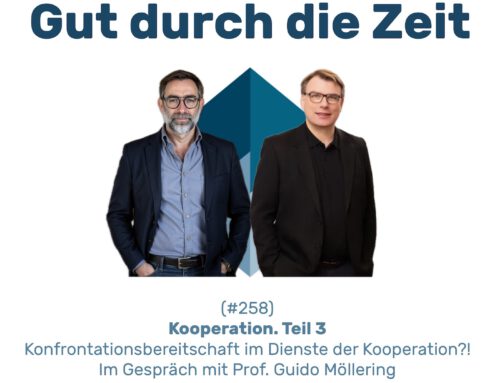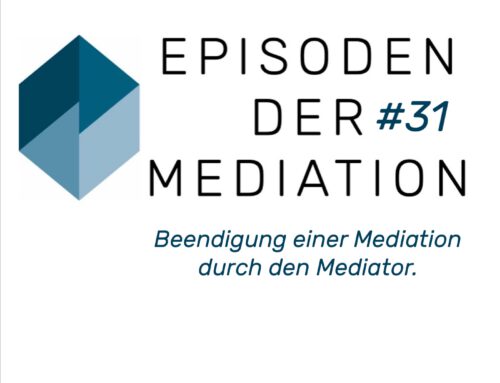INKOVEMA Podcast „Well through time“
#47 – Deal mediation or contract mediation without conflict
Mediation without conflict – Who needs such a thing and why didn't the German legislator (also) see it that way? In conversation with Jörg Schneider-Brodtmann
Well through time. The podcast about mediation, conflict coaching and organisational consulting.
Jörg Schneider-Brodtmann, Lawyer at Menold Bezler in Stuttgart and certified mediator. WirtschaftsWoche 34/2019 described the negotiation expert as one of the most renowned lawyers for IT law (co-author of the IT law commentary in the Verlag Dr. Otto Schmidt KG), who has been advocating the advantages of mediation for years, even in conflict-prone, complex contractual relationships – and recommends mediative (contractual) process support, even if an (escalated) conflict situation has not yet arisen. In this episode with Sascha Weigel, Jörg Schneider-Brodtmann explains the extent to which this mediating, all-party approach on this side of a conflict is „mediation work“ and what effects it has that the German Mediation Act constitutively „requires a conflict“.
Contents:
-
"Deal mediation" - mediation without conflict? In contract mediation, a neutral third party supports the parties in the negotiation process – up to the intended conclusion of the contract. The process is essentially characterised by the fact that there is no (manifest or escalated) conflict at the start of the process, but at most a – mutually recognised – clash of interests, which, however, is not in the foreground due to the potential alignment of interests for jointly created gains, but rather wants to be taken into account. Potential conflicts that arise when something new is to be created together are therefore taken seriously – and the contractual agreements are supported from the outset with the help of a neutral, impartial third party.
- Benefits of deal mediationBasically, every dispute resolution through mediation is aimed at reaching an agreement, i.e. a contract. The application of mediation principles to contract negotiations that are not based on a (manifest) conflict is therefore consistent from a methodological point of view. The advantages of deal mediation include the fact that the parties can concentrate more on the content of the negotiations than the process when a mediator is involved, value-adding aspects are emphasised more than the mere distribution of value, differences in the negotiating style and negotiating power of the parties are balanced out, language and cultural hurdles can be overcome and negotiation blockades resulting from the "negotiation dilemma" can be resolved more easily. Another advantage that should not be underestimated is that once the contract mediator has been selected, he or she can accompany the contract throughout its entire term if it is successfully concluded and can be deployed at any time to resolve conflicts if disruptions and escalations occur. In this sense, the contract mediator acts as a "Counsel to the Deal".
-
History and concept: The concept of deal mediation was first developed in the USA as a new field of activity for lawyers, primarily in complex cross-border transactions, and was subsequently adopted in Europe. In Germany, this development was already taken up and favoured in the run-up to the Mediation Act, although it was not legally enshrined in the Mediation Act.
Left:
- Website Jörg Schneider-Brodtmann: Menold Bezler





Leave A Comment